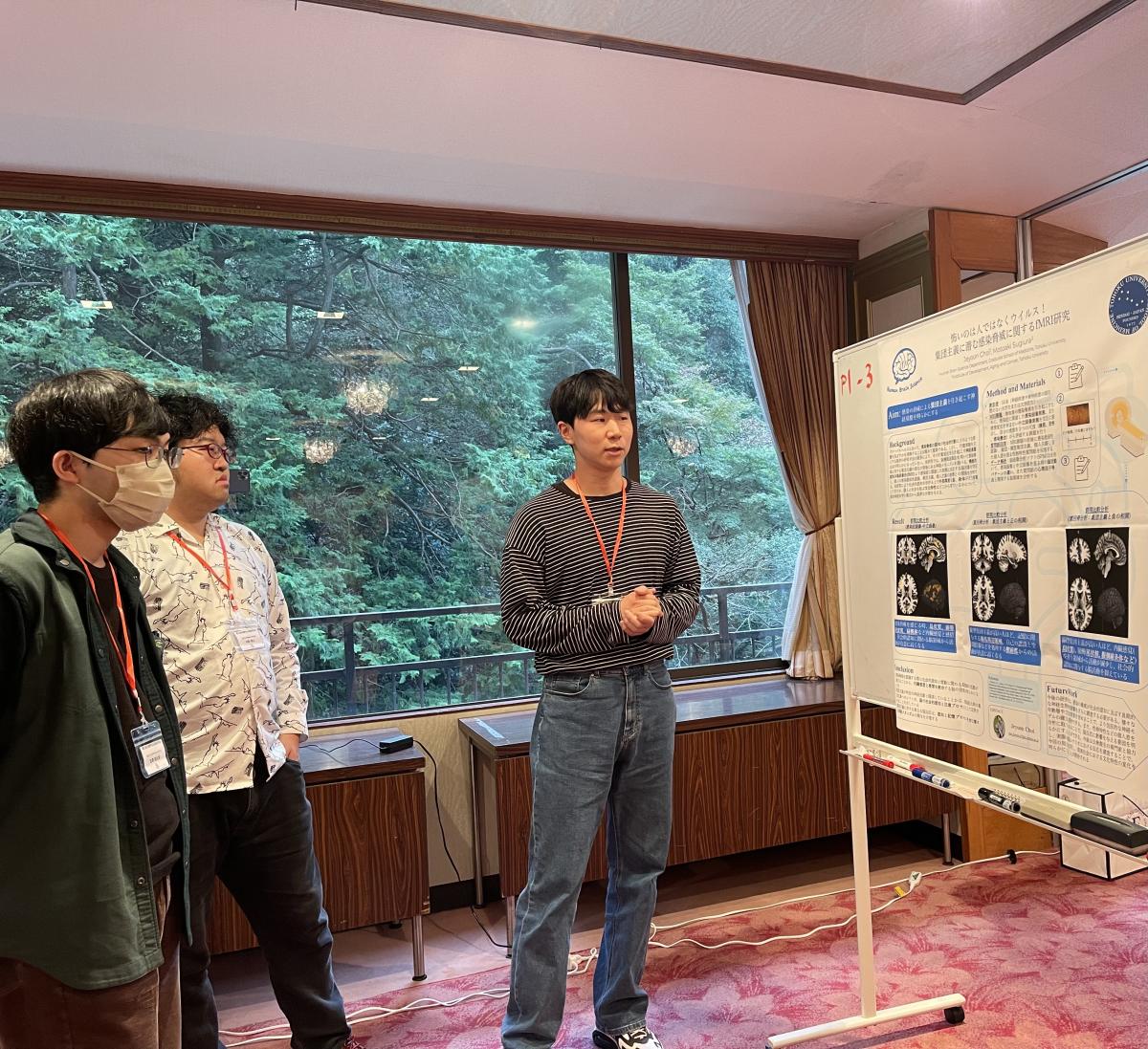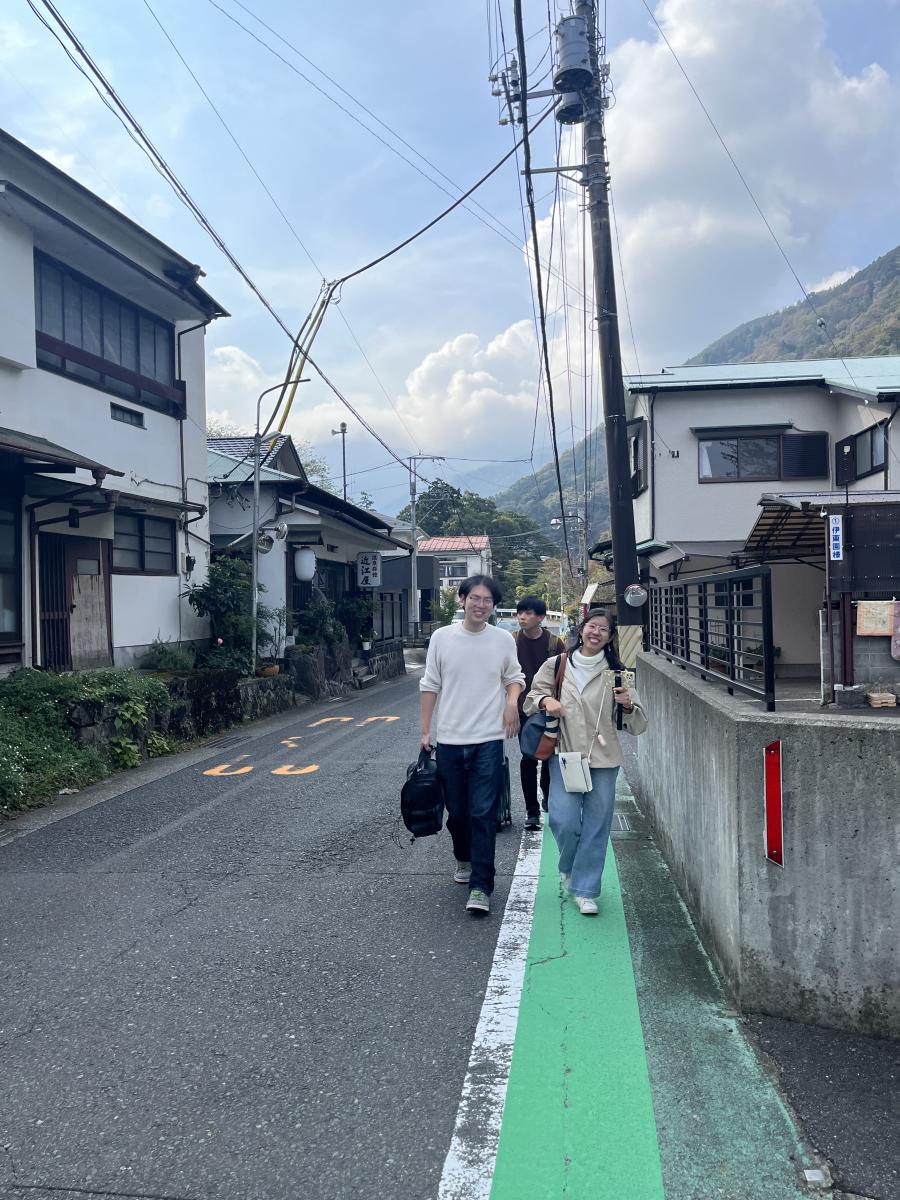Research News Details

Disaster and the power to live
We are conducting various studies on human mind and behavior in disasters.
In particular, we clarified 8 factors (leadership, problem solving, altruism, stubbornness, etiquette, emotion regulation, self-transcendence, and active well-being) of the “power to live with disasters” in a survey of survivors of the Great East Japan Earthquake (2011), and using this questionnaire we are conducting various surveys, behavioral experiments, and clarification of their psychological and brain bases. We aim to apply the results of our research to disaster management and general education.
Questionnaire development
Eight Personal Characteristics Associated with the Power to Live with Disasters as Indicated by Survivors of the 2011 Great East Japan Earthquake Disaster (Sugiura et al., PLoS ONE, 2015)
A Concise Psychometric Tool to Measure Personal Characteristics for Surviving Natural Disasters: Development of a 16-Item Power to Live Questionnaire (Ishibashi et al., Geosciences, 2019)
Surveys and behavioral experiments
Psychological Processes and Personality Factors for an Appropriate Tsunami Evacuation (Sugiura et al., Geosciences, 2019)
Survival-oriented personality factors are associated with various types of social support in an emergency disaster situation (Sugiura et al., PLoS ONE, 2020)
Two Major Elements of Life Recovery After a Disaster: Their Impacts Dependent on Housing Damage and the Contributions of Psycho-Behavioral Factors (Sato et al., J Disaster Res, 2021)
Self-help and mutual assistance in the aftermath of a tsunami: How individual factors contribute to resolving difficulties (Sugiura et al., PLoS ONE, 2021)
Intentional binding and self-transcendence: Searching for pro-survival behavior in sense-of-agency (Niikuni et al., Conscious Cogn, 2022)
Adaptability, supernaturalness, and the neurocognitive basis of the self-transcendence trait: Toward an integrated framework through disaster psychology and a self-agency model (Sugiura, Front Behav Neurosci, 2022)
Does the eight-factor “power to live” in disaster exist since childhood? (Matsuzaki et al., Front Public Health, 2022)
Personality Traits and Types of Housing Recovery after the 2011 Great East Japan Earthquake and Tsunami (Honda et al., Sustainability, 2023)
Motivational decline and proactive response under thermal environmental stress are related to emotion- and problem-focused coping, respectively: Questionnaire construction and fMRI study (Kawata et al., Front Behav Neurosci, 2023)
Coping behavior under COVID-19 pandemic (Ding et al., Front Psychiatry, 2023)
Adoptation to digitization society (Hamamoto et al., Front Psychol, 2023)
Tsunami evacuation online experiment (Takubo et al., J Disaster Res, 2024)
Better-Than-Average effect (Ding et al., Fron Psychol, 2024)
Brain studies
Taking another’s perspective promotes right parieto-frontal activity that reflects open-minded thought (Miura et al., Social Neuroscience, 2020)
Automatic adaptive emotion regulation is associated with lower emotion-related activation in the frontoparietal cortex and other cortical regions with multi-componential organization (Sugiura et al., Front Behav Neurosci, 2023)
Why people hesitate to help: Neural correlates of the counter-dynamics of altruistic helping and individual differences in daily helping tendencies (Wijaya et al., Front Psychol, 2023)
Social-coalitional trait is related to coping capacity with mortality threat: association with leadership and a reduced parietal response to mortality salience (Hirano et al., Front Psychol, 2023)
Eight Personal Characteristics Associated with the Power to Live with Disasters as Indicated by Survivors of the 2011 Great East Japan Earthquake Disaster (Sugiura et al., PLoS ONE, 2015)
A Concise Psychometric Tool to Measure Personal Characteristics for Surviving Natural Disasters: Development of a 16-Item Power to Live Questionnaire (Ishibashi et al., Geosciences, 2019)
Surveys and behavioral experiments
Psychological Processes and Personality Factors for an Appropriate Tsunami Evacuation (Sugiura et al., Geosciences, 2019)
Survival-oriented personality factors are associated with various types of social support in an emergency disaster situation (Sugiura et al., PLoS ONE, 2020)
Two Major Elements of Life Recovery After a Disaster: Their Impacts Dependent on Housing Damage and the Contributions of Psycho-Behavioral Factors (Sato et al., J Disaster Res, 2021)
Self-help and mutual assistance in the aftermath of a tsunami: How individual factors contribute to resolving difficulties (Sugiura et al., PLoS ONE, 2021)
Intentional binding and self-transcendence: Searching for pro-survival behavior in sense-of-agency (Niikuni et al., Conscious Cogn, 2022)
Adaptability, supernaturalness, and the neurocognitive basis of the self-transcendence trait: Toward an integrated framework through disaster psychology and a self-agency model (Sugiura, Front Behav Neurosci, 2022)
Does the eight-factor “power to live” in disaster exist since childhood? (Matsuzaki et al., Front Public Health, 2022)
Personality Traits and Types of Housing Recovery after the 2011 Great East Japan Earthquake and Tsunami (Honda et al., Sustainability, 2023)
Motivational decline and proactive response under thermal environmental stress are related to emotion- and problem-focused coping, respectively: Questionnaire construction and fMRI study (Kawata et al., Front Behav Neurosci, 2023)
Coping behavior under COVID-19 pandemic (Ding et al., Front Psychiatry, 2023)
Adoptation to digitization society (Hamamoto et al., Front Psychol, 2023)
Tsunami evacuation online experiment (Takubo et al., J Disaster Res, 2024)
Better-Than-Average effect (Ding et al., Fron Psychol, 2024)
Brain studies
Taking another’s perspective promotes right parieto-frontal activity that reflects open-minded thought (Miura et al., Social Neuroscience, 2020)
Automatic adaptive emotion regulation is associated with lower emotion-related activation in the frontoparietal cortex and other cortical regions with multi-componential organization (Sugiura et al., Front Behav Neurosci, 2023)
Why people hesitate to help: Neural correlates of the counter-dynamics of altruistic helping and individual differences in daily helping tendencies (Wijaya et al., Front Psychol, 2023)
Social-coalitional trait is related to coping capacity with mortality threat: association with leadership and a reduced parietal response to mortality salience (Hirano et al., Front Psychol, 2023)
202311.04 How Does the Fear of Infection Make Us More Community-Minded? (Poster Presentation) Posted in RESEARCH
Attachments




It is well-established that shifts in risk perception due to the proliferation of infections can steer a society toward a more collectivist culture. While this shift has been explored at the individual level through behavioral studies, the neurological underpinnings have not been as thoroughly investigated. In our study, we utilized functional Magnetic Resonance Imaging (fMRI) to examine the specific brain activities associated with changing perceptions of infection risk. We showcased our findings in a poster at "The 5th Coregulating Social Brain Group(CSBG)" in Hakone-Yumoto, Japan. The poster session concluded with an engaging discussion among attendees, which unfolded over a shared buffet and a relaxing visit to the hot springs. This fusion of scientific exchange and Japanese hospitality culminated in an enriching experience that was uniquely possible in Japan.(CHOI)
https://sites.google.com/view/csbg/